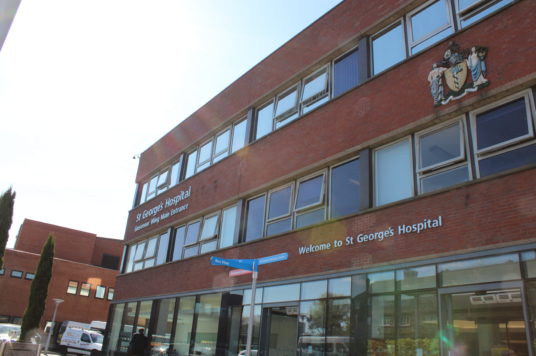Heart surgery at St George’s – information for patients and relatives
On Thursday, 26 March 2020, a review examining the deaths of 202 patients who underwent heart surgery at St George’s Hospital between 2013 and 2018 was published.
We accept the findings of the review in full, and Dr Richard Jennings, our Chief Medical Officer, has apologised for the standard of care many patients received during this period. You can access the Trust’s full statement here.
This webpage has been created to provide current patients, their relatives and members of the public with further information about the heart surgery review, and how to access advice and support. We hope you find it helpful.
Background information, and key findings
The review – carried out by an independent panel of medical and surgical experts – examined the deaths of 202 patients who underwent heart surgery at St George’s between 2013 and 2018.
The panel’s report can be accessed here. It concludes there were failings in the care provided to 102 heart surgery patients at St George’s, and that for 67 patients these care failings either definitely, most likely or probably contributed to their deaths.
Dr Jennings said:
“We fully accept the panel’s findings, and we apologise unreservedly for the serious failings in care the review has identified. The care we provided in the past fell way short of the high standards our patients deserved. We have let these patients and their families down, for which I am deeply sorry.”
We have introduced a number of improvements to our heart surgery service in recent years, and the service is now safe. However, this can never truly put right what happened in the past.
Support and advice for relatives
We contacted the relatives of deceased patients included in the heart surgery mortality review last year.
Families were contacted earlier this month– by telephone and letter – to inform them of the panel’s findings in relation to individual patients, as well as to offer support and a meeting. A number of meetings with families have already taken place.
A dedicated advice line – staffed by senior heart surgery staff at St George’s – has also been running since the review was set up last year.
Advice and support for all our patients
As stated above, the heart surgery service at St George’s is safe. However, we appreciate that some people may have concerns or questions, and we are committed to providing everyone with the information, advice and support they need.
If you would like to speak to a member of staff, you can call our Patient Advice and Liaison team on a dedicated telephone number – 020 8725 4079 – between 9am-7pm, Monday-Friday and 9am-5pm Saturday-Sunday; or you can email pals@stgeorges.nhs.uk. All calls will be handled confidentially and sensitively.
Improvements to our heart surgery service
We have worked hard to deliver improvements to the heart surgery service at St George’s.
This has led to a number of improvements, which the Care Quality Commission (CQC), the organisation which inspects hospitals, recognised during their latest inspection in July 2019.
We also received confirmation in September 2019 that, since March 2018, heart surgery mortality rates at the Trust were back within the expected range*– where they have remained since.
Other changes introduced in recent years include the appointment of a senior cardiac surgeon from outside the organisation to lead the heart surgery service at the Trust.
In addition, all new heart surgery cases are being reviewed by a multi-disciplinary team of healthcare professionals, so ensuring better decision making when it comes to recommending patients for surgery.
If you have other ideas that you think can help improve the service, please do contact us via email at cardiacreview@stgeorges.nhs.uk
*Heart surgery outcomes at St George’s for the most up to date review period (April 2015-March 2018) are back within the normal or expected range. The normal or expected range is determined by the National Institute for Cardiovascular Outcomes Research (NICOR), which collects patient outcome data for all 31 heart surgery centres nationally. For further information, visit www.nicor.org.uk


